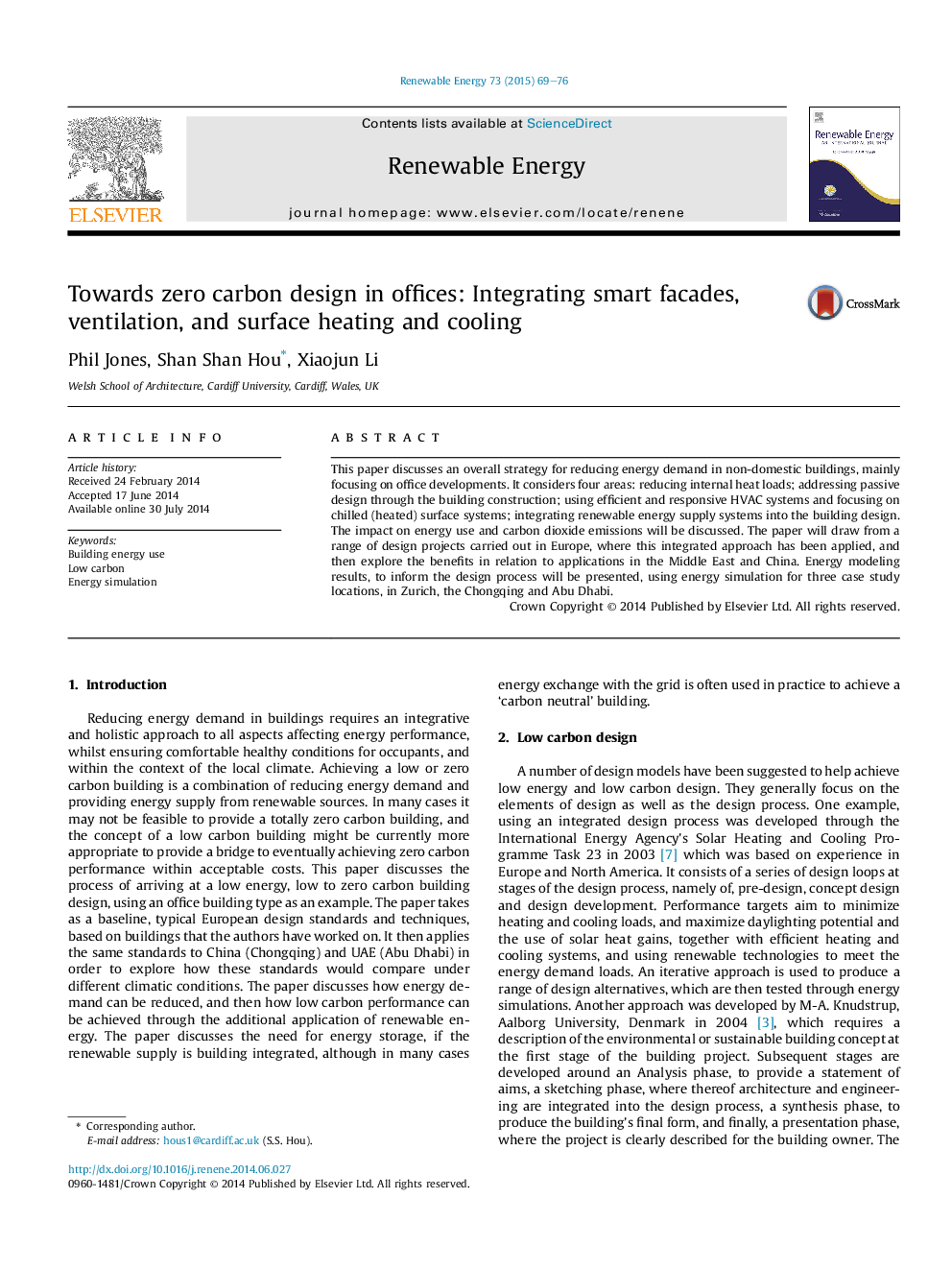| Article ID | Journal | Published Year | Pages | File Type |
|---|---|---|---|---|
| 6767805 | Renewable Energy | 2015 | 8 Pages |
Abstract
This paper discusses an overall strategy for reducing energy demand in non-domestic buildings, mainly focusing on office developments. It considers four areas: reducing internal heat loads; addressing passive design through the building construction; using efficient and responsive HVAC systems and focusing on chilled (heated) surface systems; integrating renewable energy supply systems into the building design. The impact on energy use and carbon dioxide emissions will be discussed. The paper will draw from a range of design projects carried out in Europe, where this integrated approach has been applied, and then explore the benefits in relation to applications in the Middle East and China. Energy modeling results, to inform the design process will be presented, using energy simulation for three case study locations, in Zurich, the Chongqing and Abu Dhabi.
Related Topics
Physical Sciences and Engineering
Energy
Renewable Energy, Sustainability and the Environment
Authors
Phil Jones, Shan Shan Hou, Xiaojun Li,
